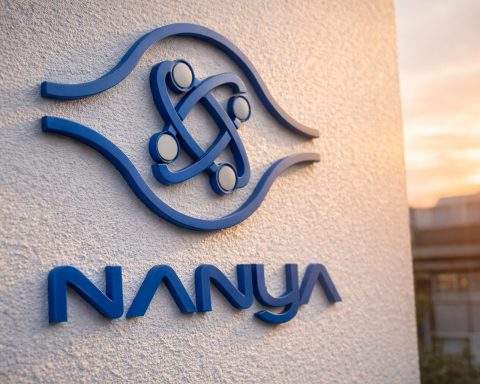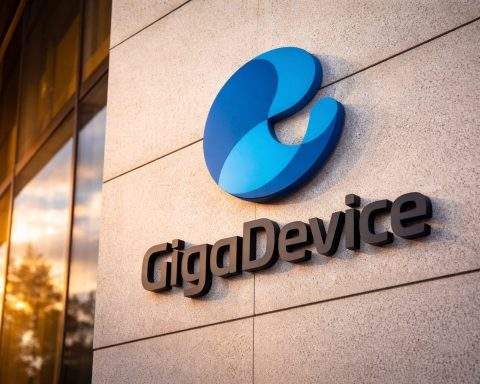North America
- Tech Selloff Deepens on Valuation and AI Jitters: U.S. technology stocks extended a two-day slide, wiping out roughly $1 trillion in market value reuters.com reuters.com. The Nasdaq Composite fell 0.7% on Aug 20, adding to steep losses from the prior day reuters.com. Analysts pointed to stretched valuations and profit-taking after big AI-fueled gains. “To me, tech was overbought… now it’s kind of natural for the market to sell some of that good news,” said Seth Hickle, a wealth manager, noting investors had rushed to lock in AI-driven profits reuters.com. Concerns also grew about political risks – President Donald Trump has floated unprecedented interventions in tech, including potential government stakes in chipmakers reuters.com. Impact: Mega-cap tech shares like Apple and Amazon each sank over 1% reuters.com, dragging the S&P 500 down 0.2%. Short sellers reaped big profits as the AI hype cooled, and investors rotated into defensive sectors, leaving U.S. markets on edge ahead of central bank signals.
- Washington Eyes Stakes in Chip Giants, Alarming Investors: In a striking policy shift, the Trump administration confirmed it is working on a deal for the government to take a 10% equity stake in Intel – a move virtually unheard of in U.S. free markets reuters.com. This follows Trump’s public attacks on Intel’s CEO and calls for more control over strategic tech assets. Market commentators likened it to “industrial policy on overdrive,” stoking fears of broader state intervention reuters.com. “If Washington is willing to take a stake in Intel, it may be prepared to do the same in other ‘strategic’ companies,” warned Jacob Falkencrone, a strategist at Saxo Bank, calling the shift a sea change for investors’ portfolios reuters.com. Impact: Chip stocks and broader tech shares faltered as investors grappled with potential dilution and government influence reuters.com reuters.com. The unusual meddling rattled market confidence, with some noting it could set a precedent for U.S. industry – even Bernie Sanders voiced support, arguing taxpayers deserve a share of any gains reuters.com. Tech executives and fund managers are now anxiously watching to see how far Washington will go in redefining its relationship with Corporate America.
- Fed Jitters Grow as Trump Pressures Central Bank: The U.S. dollar drifted and bond markets turned cautious as traders awaited Fed Chair Jerome Powell’s keynote in Jackson Hole reuters.com. Worries about Fed independence flared after President Trump demanded the resignation of Fed Governor Lisa Cook over unproven allegations reuters.com. Investors fear political interference could skew policy, undermining confidence reuters.com. Meanwhile, markets are pricing in an 82% chance of a Fed rate cut in September, given cooling labor data reuters.com. “The risks are asymmetric – because a cut is already priced in, a hawkish surprise would spark a sell-off in Treasuries and boost the dollar,” said Kenneth Broux, head of FX research at Societe Generale reuters.com. Impact: With a rate cut seemingly baked in, U.S. two-year yields hovered near recent lows and the dollar index stalled reuters.com. Any signal from Powell pushing back on easing bets could jolt markets. The Fed’s delicate balance – cooling inflation without ceding to political pressure – has global investors on high alert for Friday’s speech 1 .
- Target’s CEO Shake-Up Disappoints Investors: Retail giant Target Corp. announced longtime insider Michael Fiddelke as its next CEO, succeeding Brian Cornell in Feb 2026 reuters.com. The choice of a 20-year company veteran “disappointed investors who were looking for an external candidate to refresh the retailer’s approach,” according to JPMorgan analysts investopedia.com. Shares of Target plunged 6% on the news reuters.com, as analysts and shareholders fretted that an internal hire may not fix Target’s sales slump and inventory woes. “We have very mixed feelings about this appointment…an internal pick doesn’t necessarily remedy the entrenched groupthink that has plagued Target,” said Neil Saunders, retail analyst at GlobalData reuters.com. Fiddelke insists his priority is to “get us back to growth” and leverage his deep company experience reuters.com. Impact: Target’s stock, already down ~25% this year, was among the S&P 500’s worst performers after the CEO reveal investopedia.com. The shake-up comes as Target faces slowing sales and margin pressures; investors are skeptical that Fiddelke will enact bold changes. All eyes are on whether the new CEO will revamp strategy or stick to the status quo in the coming quarters 2 .
Europe
- Eurozone Growth Surprises to Upside (PMI):Europe’s economy showed resilience in August, as a flash PMI survey beat expectations despite export woes. The Eurozone Composite PMI hit 51.1, a 15-month high and third monthly increase reuters.com. Manufacturing led the upturn – the factory PMI jumped back above 50 (expansion) for the first time in over three years reuters.com, with output growing at the fastest rate since early 2022. “Things are getting better…overall, we’ve seen a slight acceleration in growth,” observed Cyrus de la Rubia, chief economist at Hamburg Commercial Bank, noting improvements in both manufacturing and services reuters.com. Germany saw its fastest growth since March, driven by a production rebound, while France’s decline nearly stalled – its smallest drop in a year reuters.com. Impact: The data suggest the eurozone may skirt recession for now reuters.com. However, inflationary pressures ticked up alongside growth – service input costs rose at a five-month high pace, which “might make the ECB wince” as it strives to cool prices reuters.com. Markets are recalibrating rate expectations: a Reuters poll finds ECB officials likely on hold until a possible December cut, with no consensus on the year-end rate path reuters.com. Overall, Europe’s modest uptick in activity signals cautious optimism that the bloc’s economy can endure global headwinds for now 3 .
- FTSE 100 Hits Record High as European Stocks Steady: In contrast to Wall Street’s turmoil, European equities were remarkably steady. On Aug 20, the pan-European STOXX 600 edged up 0.25%, and London’s FTSE 100 rallied 1.17% to an all-time high reuters.com. Gains in defensive sectors like consumer staples and healthcare lifted the FTSE, highlighting a rotation into less volatile stocks reuters.com. Britain’s blue-chip index, heavy on oil and pharma names, benefited from rising commodity prices and a bounce in global bond prices. Impact: Hitting a record underscored investor appetite for UK equities amid global uncertainty. “European shares rose, even as U.S. tech sold off, showing a move out of high-valuation names,” noted market strategists reuters.com. Some volatility returned by Aug 21, with European markets flat and traders in wait-and-see mode for Fed signals reuters.com reuters.com. Still, the FTSE’s milestone – reached as sterling inflation data surprised – suggests that investors are finding pockets of strength in Europe, favoring value-oriented markets like the UK even as U.S. indices waver.
- UK Inflation Leads G7, Bonds Rally on Easing Price Fears: The UK logged a 3.8% annual inflation rate in July – the fastest among G7 economies reuters.com. While uncomfortably high, the figure wasn’t worse than expected, sparking a relief rally in British gilts. Yields on 10-year UK bonds fell ~7 basis points to 4.68% after the data, as traders bet the Bank of England may be nearing the peak of its rate hikes reuters.com. The pound ticked up then pared gains, reflecting mixed sentiment on whether the BoE will pause or do one final hike reuters.com. Impact: The UK’s inflation, driven by services and wages, remains well above target, but its gradual cooling (from over 4% earlier) is fueling hopes of a soft landing. Finance Minister Jeremy Hunt noted that Britain still faces price pressures but welcomed the slowdown relative to fears. Markets now see a greater chance the BoE could hold rates steady if upcoming data confirms an inflation downtrend. For now, the UK holds the unenviable top spot for inflation in the rich-world – a key challenge for policymakers heading into the autumn.
Asia-Pacific
- India Bans Online Betting Games, Stocks Plunge:India’s parliament approved a ban on online games involving monetary stakes, sending shockwaves through the country’s tech and gaming sector reuters.com. The Lok Sabha (lower house) passed a bill outlawing real-money online games – including rummy, poker and fantasy sports – with jail terms of up to 3 years for violators reuters.com. Investors reacted swiftly: shares of Nazara Technologies, a leading gaming platform, tanked 22% in two days, on track for their worst-ever 48-hour drop reuters.com. The stock hit a 15-week low as analysts warned the new law could render India’s online gaming industry “infeasible” reuters.com. Brokerage ICICI Securities downgraded Nazara to “reduce” from “add” and slashed its price target by 27%, noting the regulatory move destroys the viability of real-money gaming models reuters.com. Peers were dragged down as well – OnMobile Global and Delta Corp fell ~3% each after the news broke reuters.com. Impact: The ban, aimed at curbing betting and gambling, wipes out more than half of Nazara’s year-to-date stock gains reuters.com and raises concern for India’s startup ecosystem. Industry groups argue it could drive gaming startups out of India, while proponents say it will protect users from addiction. As the bill heads to the upper house, India’s nascent online gaming industry faces an existential threat, forcing companies to rethink or pivot their business models.
- China Slowdown Spurs Yuan Skepticism and EM Currencies on Edge:China’s economic momentum weakened in midsummer, amplifying worries across Asia. Key July metrics badly missed forecasts – retail sales rose just +3.7% (vs ~5.9% expected) and industrial output grew +5.7%, the slowest pace since Nov 2024 reuters.com. New home prices fell nearly 3% from a year earlier, extending a two-year property slump reuters.com. In response, investors have turned increasingly bearish on the Chinese yuan. A Reuters poll shows short positions on the yuan are at their highest since May, as China’s growth outlook dims reuters.com. Other Asian currencies are also in flux: Bank Indonesia surprised markets by cutting its policy rate 25 bps (before the survey, to a three-year low), and the Indian rupee and Malaysian ringgit have seen bullish bets trimmed amid the regional uncertainty reuters.com reuters.com. “Mounting U.S. rate cut bets could actually lift Treasury yields, creating headwinds for EM currencies,” noted Poon Panichpibool, a strategist at Krung Thai Bank reuters.com. Meanwhile, sentiment on the South Korean won flipped negative after earlier optimism, and traders pared back positions on the Taiwan dollar and Thai baht reuters.com. Impact: With China’s recovery faltering, emerging Asian markets are bracing for currency volatility. Policymakers in export-reliant economies like Korea and Thailand may face pressure to ease policy or intervene if their currencies swing. The yuan’s weakness – it neared multi-year lows – is rippling through trade partners. Should the U.S. Fed hold rates higher for longer than expected, Asia’s fragile currencies could face further stress, underscoring the delicate balance between supporting growth and maintaining stability in the region.
- New Zealand Cuts Rates as Global Easing Cycle Begins: Marking a pivot among developed economies, the Reserve Bank of New Zealand slashed interest rates to a three-year low on Aug 20 reuters.com. The RBNZ’s 25 bps cut, expected by some analysts as growth cools, brought its benchmark rate down sharply and signaled more easing ahead. The New Zealand dollar (“kiwi”) tumbled over 1% on the announcement reuters.com, reflecting expectations of looser policy. This move makes New Zealand one of the first advanced economies to cut rates in 2025, as inflation there has retreated into the RBNZ’s target band. Impact: The surprise cut underscores how monetary policy paths are diverging globally – with New Zealand and some Asia-Pacific central banks tilting dovish while the U.S. Fed and European ECB are only starting to contemplate cuts. Kiwi bond yields fell on hopes that cheaper credit will bolster New Zealand’s housing and agriculture sectors. However, a weaker kiwi also raises import costs. Market watchers predict Australia’s central bank may eventually follow suit if global demand softens. The RBNZ’s easing provides an early test case of whether inflation can be tamed enough to safely stimulate growth – a scenario other economies will monitor closely as the post-pandemic cycle turns.
Latin America
- Latin America Seeks Trade Diversification Amid U.S. Tariffs: Facing protectionist headwinds, Latin American leaders are pushing to reduce reliance on U.S. and China by expanding trade partnerships. José Manuel Salazar, head of the U.N. Economic Commission for Latin America and the Caribbean (ECLAC), urged countries in the region to “diversify” their export and import markets in response to President Trump’s tariffs reuters.com. “Rather than just substituting imports, we need to diversify,” Salazar told Reuters, recommending renewed integration within Latin America and stronger ties to Asia, Africa and Europe reuters.com. He highlighted the long-sought EU–Mercosur trade agreement, finalized in late 2024 after two decades of talks, which is expected to secure legislative approval soon reuters.com. That deal will link the EU with Brazil, Argentina and neighbors, opening markets for agriculture and autos. Impact: The U.N. commission believes such diversification is crucial for economic resilience. By spreading trade across more partners, Latin America can better withstand U.S.–China tensions and tariff shocks. For example, Mexico is deepening supply chain integration with Europe, while Brazil eyes investment from Middle Eastern and Asian funds. ECLAC also sees an opportunity in regional cooperation – Latin America’s nations trading more with each other – to reduce external vulnerabilities. In the long run, says Salazar, investing in new markets (and even new sectors like elder care) could create millions of jobs and offset challenges like aging populations reuters.com reuters.com. The push to diversify comes at a pivotal time: with global trade rules in flux, Latin America’s ability to chart its own course may define its growth trajectory in the years ahead.
- Argentina’s Inflation Hits a Four-Year Low, Bucking Global Trend: In a surprising bit of good news, Argentina’s inflation rate decelerated to its lowest level since 2020, offering hope in a country long plagued by soaring prices. Official data showed annual inflation in July slowed to 36.6%, down from over 39% in June focus-economics.com. While still high, the figure marks significant progress – Argentina’s inflation had exceeded 50% just two years ago. Economists attribute the decline to tight monetary policy and a stabilization of the Argentine peso under capital controls. The Atlantic Council noted that inflation could soon slip below 20% on an annualized basis if current trends hold atlanticcouncil.org. Impact: Argentina’s inflation cooldown is a milestone on its road to recovery. Lower inflation is bolstering real incomes and consumer confidence after years of currency crises. It also strengthens Argentina’s hand in negotiations with the IMF, as meeting price stability targets is key to unlocking further aid. However, analysts caution that lingering fiscal deficits and upcoming elections pose risks – credibility and policy continuity will determine if the disinflation is sustained. For now, Argentina stands out as an exception in a world where many economies saw price spikes in 2024–25. The government in Buenos Aires is seizing on the data to claim its orthodox policies are bearing fruit, even as skeptics warn the battle is not yet won given Argentina’s history of inflation flare-ups.
Middle East & Africa
- Oil Prices Climb on Supply Draw, Lifting Energy Markets:Crude oil surged to its highest in months as new data showed an unexpectedly large drop in U.S. inventories, signaling robust demand reuters.com. Brent and WTI benchmarks jumped roughly 1% on Aug 21, extending recent gains. Traders cheered the 8.5 million barrel decline in U.S. crude stockpiles – far bigger than forecasts – which pointed to tighter supply reuters.com. The price rise comes as OPEC+ output cuts continue and sanctions keep Russian oil flows restricted reuters.com. Impact: The oil rally buoyed global energy stocks and bolstered petro-currencies from the Canadian dollar to the Saudi riyal. In the Gulf, Saudi Aramco shares ticked up on the higher price outlook, and Dubai’s index saw strength in utility and energy names reuters.com. However, rising oil prices also rekindled inflation worries elsewhere, particularly in oil-importing regions. Alongside oil, gold prices punched through new highs, up 1% to around $3,349/oz reuters.com, as investors sought safe havens amid the equity volatility. The dual surge in oil and gold underscores a flight to hard assets, reflecting both expectations of firming commodity demand and hedging against macroeconomic risks. Energy analysts note that if demand stays strong into autumn and OPEC maintains discipline, oil could continue its upward trend, influencing everything from gasoline costs to central bank calculations in energy-importing nations.
- South African Miner Soars on Green Metals Deal:Exxaro Resources, one of South Africa’s largest mining companies, saw its stock jump after signaling higher shareholder payouts on the back of a strategic acquisition reuters.com. Exxaro’s shares spiked 9% on Aug 21 when the firm reported a 13% rise in half-year profit and outlined plans to boost returns reuters.com. The coal-focused miner is pivoting toward “future-facing” minerals – in May it agreed to buy several manganese mines to expand into metals used in renewable energy and batteries reuters.com. With that deal set to close, CEO Mxolisi Mgojo (Ben Magara) said Exxaro will no longer need to hoard cash for takeovers. “We are now reviewing our capital allocation framework to enhance shareholder returns post the manganese transaction,” he told Reuters reuters.com. The CFO confirmed higher dividends are on the table once the acquisition is done reuters.com. Impact: Investors cheered Exxaro’s diversification and cash-return plans – the stock’s rally added roughly $300 million to its market cap. The company declared an interim dividend up 6% year-on-year reuters.com, and its earnings per share climbed 13% in H1 reuters.com. Exxaro’s move reflects a broader trend of mining firms shifting from fossil fuels to critical minerals as the world transitions to cleaner energy. By redeploying coal profits into metals like manganese (vital for steel and batteries), Exxaro aims to future-proof its business. Shareholders, in turn, are poised to benefit from both the company’s growth into new commodities and a potentially more generous capital return policy (through dividends or buybacks). It’s a balancing act of investing in greener assets while rewarding investors – one that Exxaro seems committed to as it charts a new course in the resource sector reuters.com 4 .
- Gulf Markets Muted, Focus on Fed and Logistics Deal: Major Gulf stock markets traded flat to slightly lower as Middle Eastern investors remained in a holding pattern ahead of the U.S. Fed symposium reuters.com. Currencies pegged to the dollar meant any Fed move could swiftly impact Gulf liquidity and borrowing costs. On Aug 21, Qatar’s stock index slipped 0.2% and Dubai’s index ticked down 0.1% amid light volumes reuters.com. “Monetary policy shifts in the U.S. have a significant impact on Gulf markets,” noted one analyst, given the dollar pegs and oil-driven economies reuters.com. Impact: A notable gainer in Saudi Arabia was Sadr Logistics, whose shares spiked 9% after signing a 10-year, 249 million riyal logistics contract for a major industrial project reuters.com. Elsewhere, most blue chips were little changed. State-run Abu Dhabi utility TAQA secured a $2.3 billion loan to fund expansion reuters.com, highlighting how Gulf firms are raising capital to diversify beyond oil. Overall, Gulf bourses remained in a wait-and-see mode, tracking global cues. Once Powell’s Jackson Hole comments are out, regional markets will react to any signal on U.S. rates – which could sway everything from EM capital flows to oil prices that are pivotal for Middle East economies.
Sources: Reuters, et al. – Verified news reports from Aug 20–21, 2025 reuters.com reuters.com reuters.com reuters.com reuters.com reuters.com (See inline citations for details)






